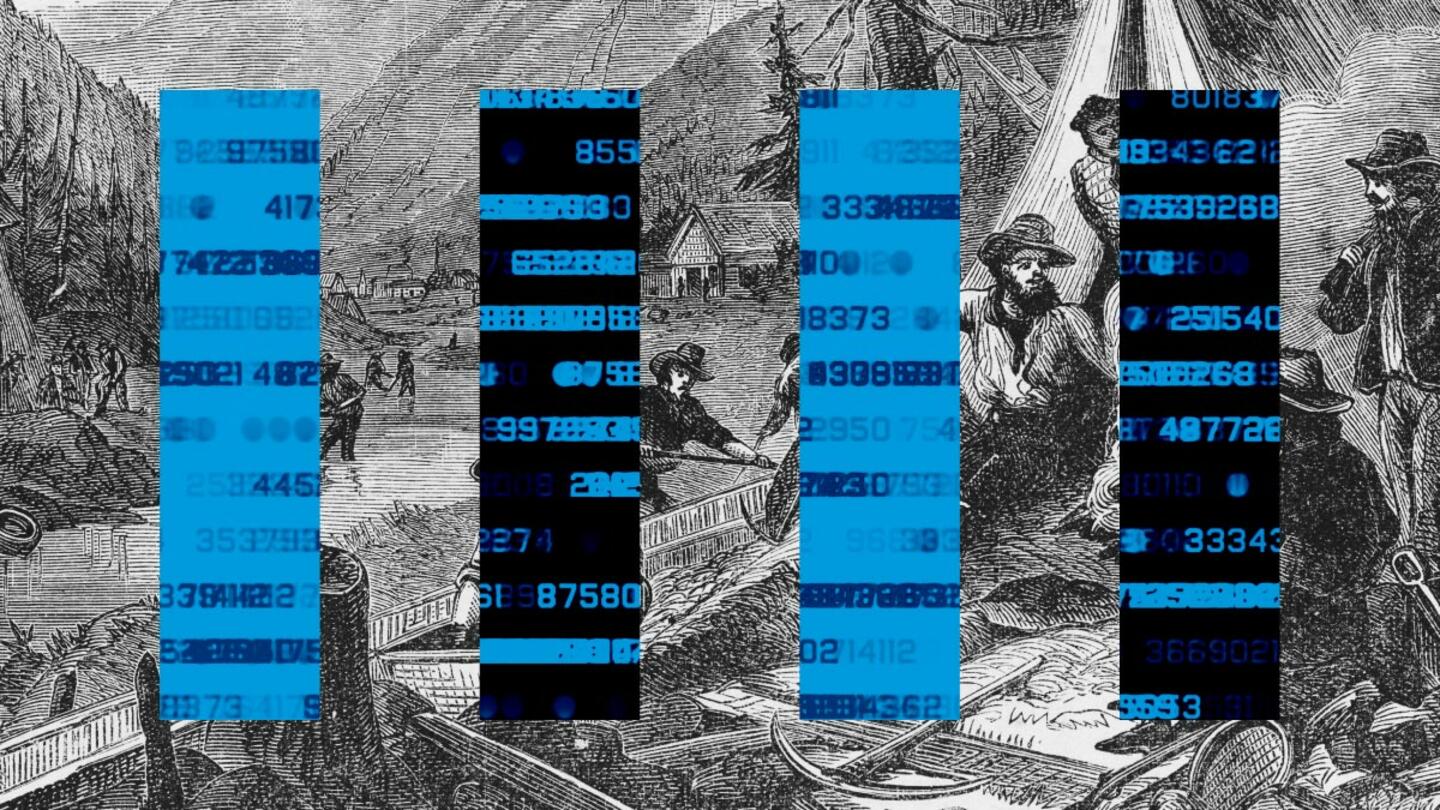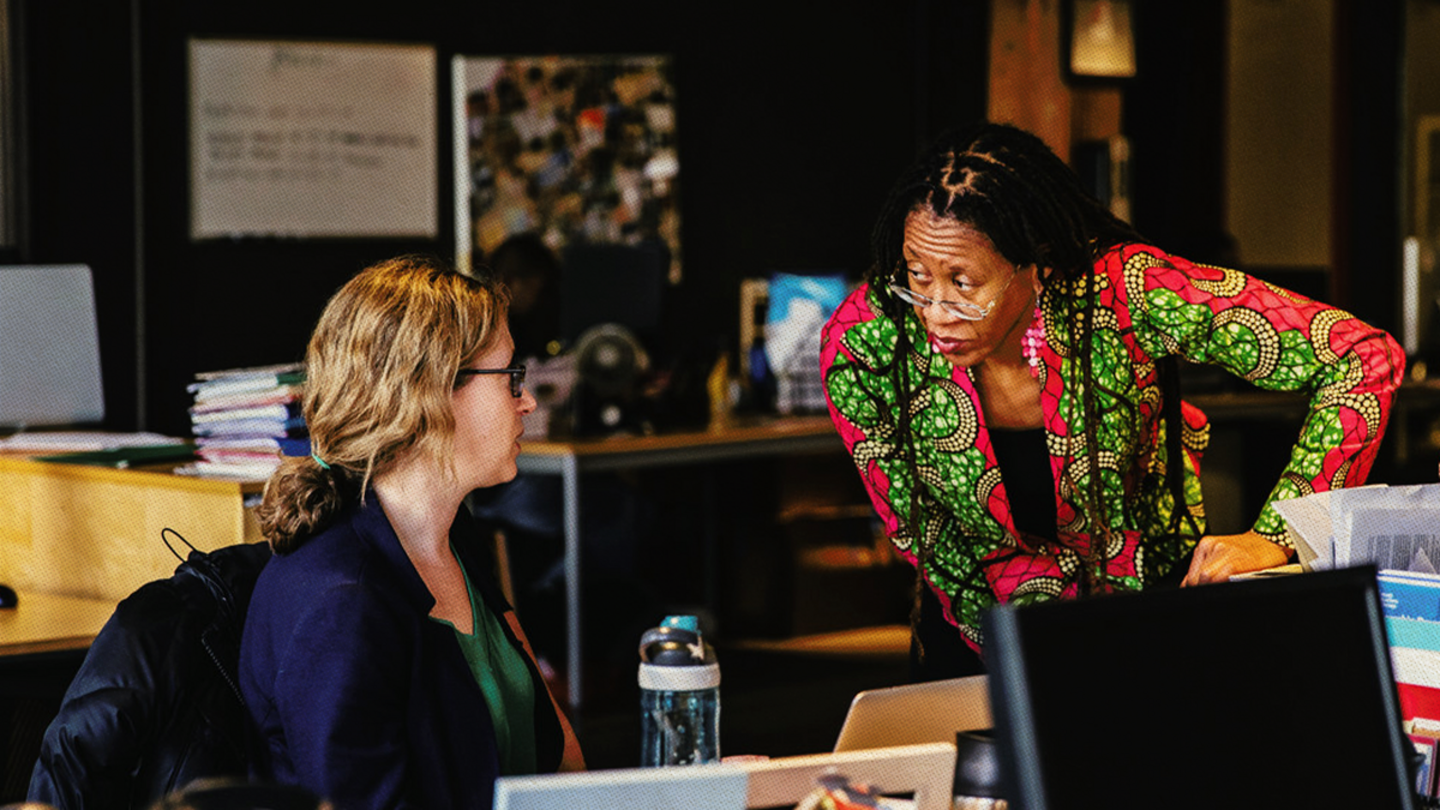For the last few years, something strange has been happening in the American job market. There are 9.5 million unfilled jobs and 6.5 million unemployed Americans.
“What’s going on?” asked Parminder Jassal, a social entrepreneur on a mission to bridge this gap by rethinking higher education.
Jassal is the CEO and founder of Unmudl, an innovative skills-to-jobs marketplace for working learners — that is, people who are working and learning simultaneously. They have families and full-time jobs. The idea of spending four years away from work and other responsibilities to attend a traditional university simply isn’t feasible for them.
Our current education system wasn’t designed for working learners. “If you rewind even 50 years ago, [higher education] was really for an elite class,” Jassal said. “It doesn’t work for working learners, who are juggling so much more than most of us. Essentially, you can’t catch up.”
Four-year degrees don’t line up with employers’ rapidly changing needs, either. “What is being taught in schools today is very different than what is needed in the workplace,” she said. “We’re just in a new age.”
Jassal’s solution? Create a marketplace that aligns education offerings with what businesses need. Unmudl works with some of the world’s largest employers to design courses that help working learners build skill sets for specific jobs in their organizations. Classes are flexible, inexpensive, and relatively short — empowering workers in this rich, untapped talent pool to pursue meaningful employment. But Jassal isn’t building this marketplace from scratch. She has found a familiar infrastructure to use: community colleges.
If this works, could the United States be looking at an entirely new pathway for every person to reach the jobs they want?
A new model for tailored higher education
Jassal’s journey started with her own experience as a working learner. After graduating from high school in Punjab, India, she moved to the United States and enrolled in a community college. This shaped her understanding of the challenges faced by millions of Americans who juggle work, education, and family responsibilities.
She now believes community colleges are uniquely equipped to provide the flexible, skills-based education that working learners need. “No other organization is better positioned than the public community colleges in the United States,” she said.
Unmudl’s innovative model allows learners to pick and choose courses from a vast network of community colleges, tailoring their education to their specific career goals. Jassal noted that for most goods and services in our country, “you can buy what you need when you need it. Why can’t you do that with higher education?”
For example, Scott is a working learner who transformed his passion for working on cars into a fulfilling career. “Scott grew up tinkering with cars, fixing things here and there,” said Jassal, but he was already working at a job he didn’t find meaningful. He took two Mechatronics courses developed in partnership with Amazon, completed his training in a few months, and landed a job with the tech giant.
“I’m so incredibly pleased,” Jassal said. “Scott got the job. Now he’s working on a specialty called controls.”
Sign up for Stand Together's Rethinking Work & Learning newsletter to get the latest stories, ideas, and trends on the future of employment.
The training needed for high-demand roles
“Companies need talent, and if they don’t find the talent, they’re unable to grow,” said Jassal. She emphasized that her approach goes beyond traditional online learning — the program collaborates with major employers to design courses tailored to specific job roles.
This collaboration creates a symbiotic relationship between educators and employers. “We ask [employers], how many numbers do they need of electricians or computer programmers or data scientists? When do they need them? How long is the training?” she said. “We share this information back to the infrastructure of almost 1,000 community colleges in real time.”
This model, unlike other higher education models, ensures that the training is directly aligned with the demands of the job market. It not only benefits learners and employers but also revitalizes the community college system. “It ends up being really a win-win situation,” said Jassal. “The companies that we work with, they’re investing in the community to be able to staff up.”
This investment helps fill immediate job openings while strengthening local economies and communities.
It worked for Scott. As a working learner, he was able to turn his passion into a career, finding fulfillment and a sense of self-worth. “What I love about Scott’s path is as a working learner, he took what he already loved, turned it into a job. He can now be in a happier place, a place of self-worth,” said Jassal.
The future of jobs doesn’t matter without people
Jassal’s vision isn’t just about filling current job openings; it’s about preparing for the future of work.
“We need to be looking at the future of jobs as we build the education of today,” she said. By creating flexible, skills-based learning opportunities, her organization is striving to ensure that every American has access to the education they need to thrive in a rapidly changing job market.
“There is so much untapped potential in the community college and technical college infrastructure in the United States,” she said. “But even beyond that, when you start thinking about the future of jobs, the future doesn’t matter if you don’t have people in it.” By bridging the gap between education and employment, Jassal is paving the way for a brighter future in which every person has access to education pathways that offer purpose and mobility throughout their careers.
As Jassal put it, “If we can ensure that every American has access to the education that they need, we can ensure better, higher-quality lives and a better America.”
***
Unmudl is supported by Stand Together Ventures Lab, which invests in and supports founders and their early-stage start-ups that are challenging the status quo.
Learn more about Stand Together’s efforts to transform the future of work and explore ways you can partner with us.

Why AI may help more people achieve the American Dream.

Data centers are at the forefront of the ‘new economy.’ But what exactly are they?

Here’s how to bridge the disconnect between employers and employees.

Lessons learned from Colorado.
